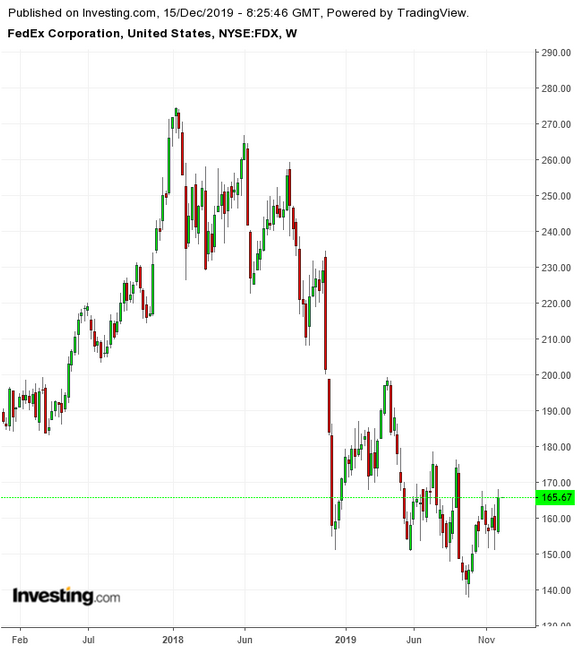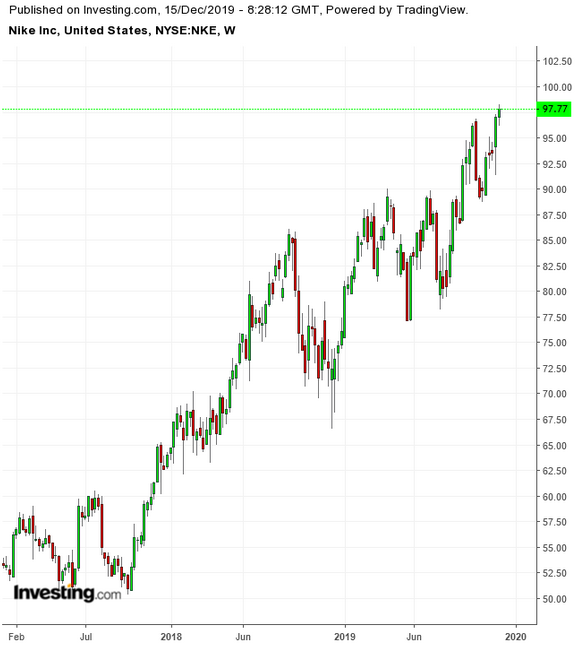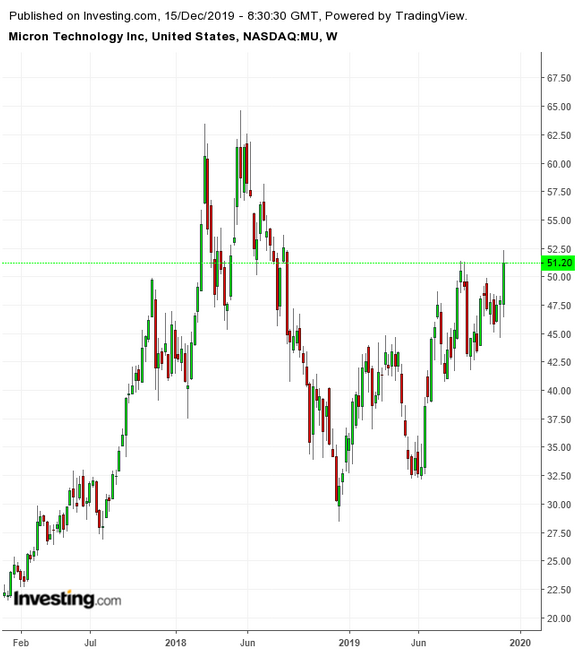Global stocks surged last week as both U.S. and China announced that they have agreed to a partial trade deal that will help avert the next round of U.S. tariffs, part of a broader trade war that has kept markets on edge during the past 18 months. Negotiators from both sides will now work toward setting a timeframe for signing the agreement, which is still subject to legal procedures, though U.S. Trade Representative Robert Lighthizer told reporters on Friday, that the two sides would aim to ink the deal in January in Washington.
Now that immediate trade jitters have abated, investors are likely to turn their attention to company fundamentals in the coming weeks. Which is appropriate since some of the biggest U.S. companies are scheduled to release big earnings announcements. For that reason we're keeping an eye on these three stocks:
1. FedEx
The world’s largest parcel delivery service, FedEx (NYSE:FDX) will report its fiscal 2020, second quarter earnings on Tuesday, Dec. 17, after the market close. On average, analysts are expecting earnings of $2.82 a share on sales of $17.6 billion.
FedEx’s report, which comes almost a month earlier than Q4 2019 numbers for the majority of U.S. companies, is generally closely watched since the delivery business is considered a proxy for the global economy. As such it can provide early warnings on trade and business investment issues.

While annoucing Q1 earnings in September, the company slashed its profit forecast for the year. The worsening economic environment, triggered by the U.S.-China trade spat, took its toll on the company’s Express delivery business.
The Memphis, Tennessee-based transportation giant now expects per-share earnings to fall between 16-29% in the current fiscal year, compared with the earlier forecast of a mid-single-digit percentage decline issued in June. FedEx also lowered its revenue outlook.
That continuing drag on the company has kept FedEx shares under pressure during the past one year. They closed at $165.67 on Friday, down 11% from a year ago. The company's report and guidance might offer some clues to wary investors on how the improving U.S.-China trade relationship could help the company perform better in the coming months.
2. Nike
Nike (NYSE:NKE) will release its second quarter fiscal 2020 financial earnings on Thursday, Dec. 19, after the market close. On average analysts are expecting the sportswear giant to make $0.58 a share profit on sales of about $10 billion.

After surging to a record high of $97.77 on Friday, Nike stock has gained more than 30% this year. Hopes of a U.S.-China trade deal helped alleviate investor fears about its global sales.
Nike’s previous earnings report showed it had remained somewhat insulated from the trade war. It beat both on earnings and sales, helped by strong demand for its women's brands. In assessing the company’s biggest long-term opportunities during his last earnings call, Chief Financial Officer Andy Campion listed women's products first, followed by apparel, then digital and international commerce.
Nike has been consistently diversifying its production away from China—a strategy that's made it less exposed to tariffs on Chinese imports. About 26% of Nike’s footwear and apparel were made in China last year, but according to Susquehanna Financial Group, less than 10% of that is imported to the U.S.
3. Micron Technology
Chipmaker Micron Technology (NASDAQ:MU) will report Q1 fiscal 2020 on Wednesday, Dec. 18, after the close. The storage chip manufacturer is estimated to have made $0.47 in profit per share on $5 billion in revenue.
In September, after its earnings release, Micron provided a disappointing quarterly profit forecast and warned that global trade tensions may prolong a memory chip industry slump. The chipmaker’s guidance means sales are on course to decline by more than 20% year-on-year for a fourth consecutive quarter.

But Micron shares, up 60% this year, are rallying with other trade-sensitive sectors on signs that a decline in chip demand is bottoming as both the U.S. and China work to resolve their trade differences. The stock closed on Friday at $51.20.
Micron was forced to halt shipments to one of its largest customers after the Trump administration banned Huawei from buying American technology. Micron produces chips that are used as the main memory in computers and as storage in mobile devices.
